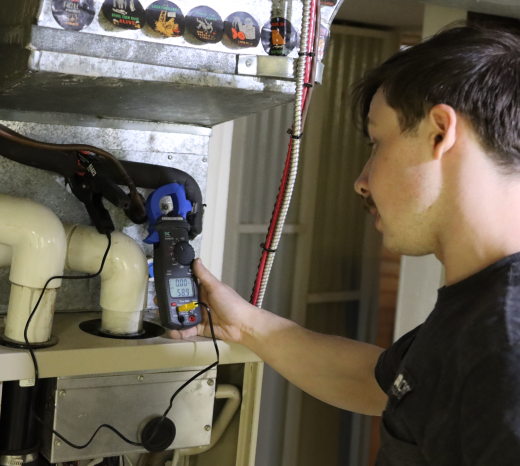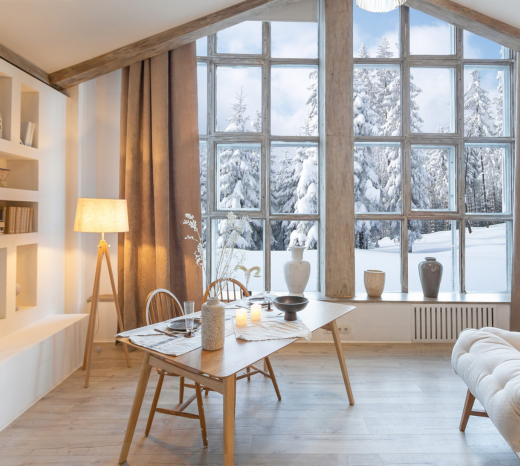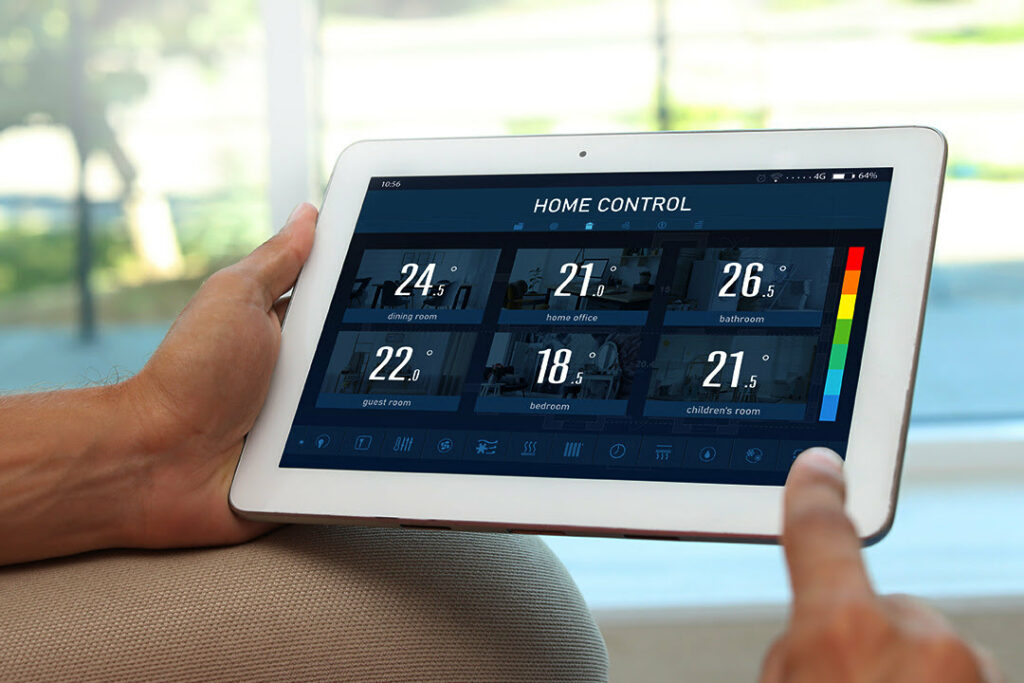Furnace Installations, Heat Pumps, Home Comfort, HVAC
Efficient and reliable home heating is critical if you live in an area like Ontario, where winters are typically harsh and even summer nights can get...

Efficient and reliable home heating is critical if you live in an area like Ontario, where winters are typically harsh and even summer nights can get chilly. But not all heating systems are the same, and understanding the differences is vital if you want to choose the best option for your home.
Heat pumps and furnaces are both popular methods of heating homes in Kitchener, Waterloo, Listowel, and Hanover—and at Cross Heating & Air Conditioning, we’ve successfully installed plenty of each kind. Read on to discover more about how both of these systems work so that you can make an informed decision about what kind will serve you best.
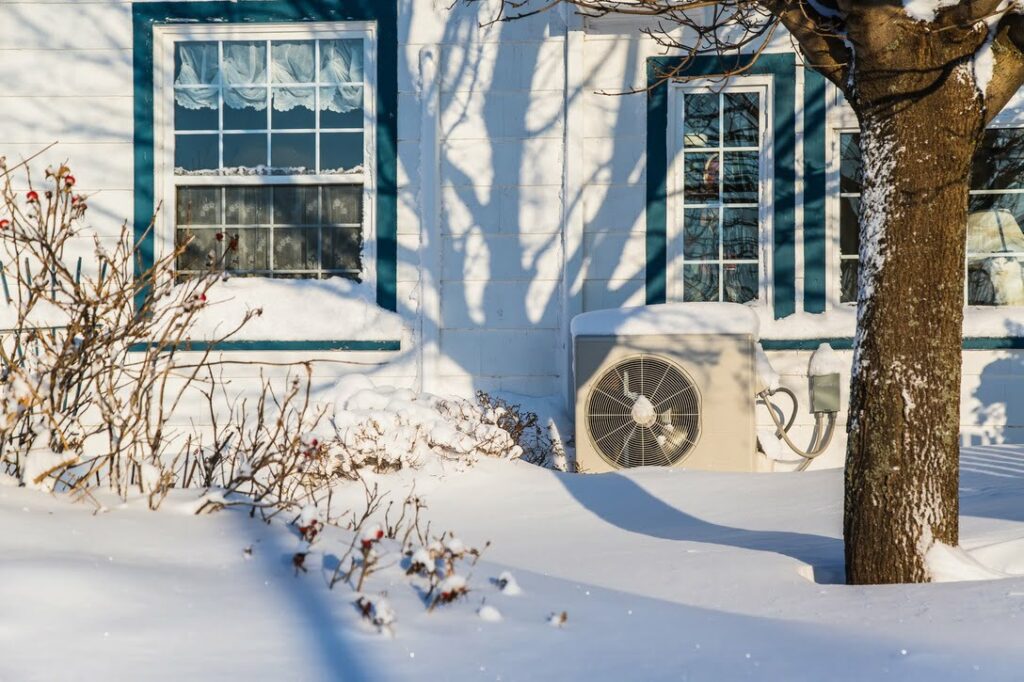
What Is a Heat Pump?
Heat pumps use the same scientific principles as air conditioners to transfer heat. That might sound backwards at first—and in fact, it is! While air conditioners use the refrigeration cycle to move warm air out of your home and transfer it outdoors, a heat pump uses refrigerant to absorb thermal energy from outside the home and move it to the interior so it can warm you.
Here’s a quick breakdown of how the process works:
- Liquid refrigerant in the outdoor unit absorbs heat from the air until it becomes a gas.
- The compressor squeezes the gas to increase its temperature.
- When the gas enters the home, the condenser converts it back into a liquid.
- The heat given off by this conversion is released to the air being moved through your ducts and into your home through vents, warming the interior.
- The liquid refrigerant moves back to the outdoor unit so the cycle can start fresh.
The process above describes a forced air heat pump, which is by far the most common kind used in Ontario. However, heat pumps can also be ductless, which can make them versatile heating and cooling solutions in homes that lack ductwork. They can be especially useful in small spaces where installing ducts would prove difficult, such as cottages.
Most heat pumps can also function in reverse, behaving like traditional air conditioners to move interior heat outside your home. For this reason, heat pumps make versatile home climate control systems, since they can heat or cool your home as needed.
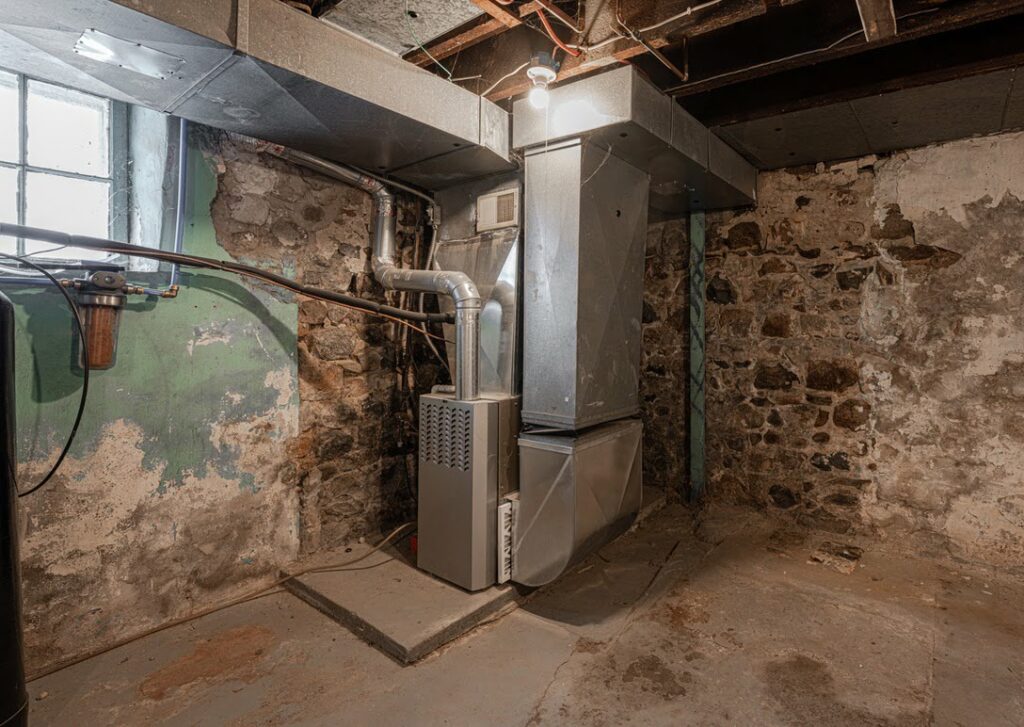
What Is a Furnace?
The principle behind a furnace is more straightforward: essentially, a fuel source heats air inside a heat exchanger so it can be blown through your home’s ducts and into various rooms via vents. This type of furnace is called a forced air furnace—other kinds exist, but forced air furnaces are by far the most common in most Ontario homes.
Here’s a breakdown of how forced air furnaces operate:
- When the temperature in your home drops to a pre-set level, your thermostat turns on the furnace.
- The furnace uses a power or fuel source to heat air inside a heat exchanger, which also transfers exhaust outside.
- The blower in the furnace moves cold air through the return vents and ducts until it reaches the heat exchanger, where it warms up.
- The air plenum moves the warm air back through the ducts and through the supply vents, where it warms your home’s interior.
Since furnaces can only heat air, they need to be paired with air conditioners to form a complete home HVAC system. Furnaces usually use natural gas or electricity to heat up the air inside the heat exchanger, although oil and propane are sometimes used in more remote regions where electrical prices are higher or natural gas lines are not available.
Similarities & Differences Between Heat Pumps & Furnaces
Similarities
Key similarities between furnaces and heat pumps include:
- Vents and ducts: furnaces and heat pumps both use ducts to move air throughout your home, and a series of vents to circulate air in and out of rooms.
- Filters: you’ll find these in both types of heating system. Filters must be replaced or cleaned on a regular basis to ensure efficiency and indoor air quality.
- Routine maintenance: regardless of the type of heating system your home uses, you’ll need to schedule regular professional maintenance to keep it running smoothly. Having us visit your home once each year to check the status of your furnace or heat pump and address any issues we find will keep it efficient and keep your home comfortable in the cold.
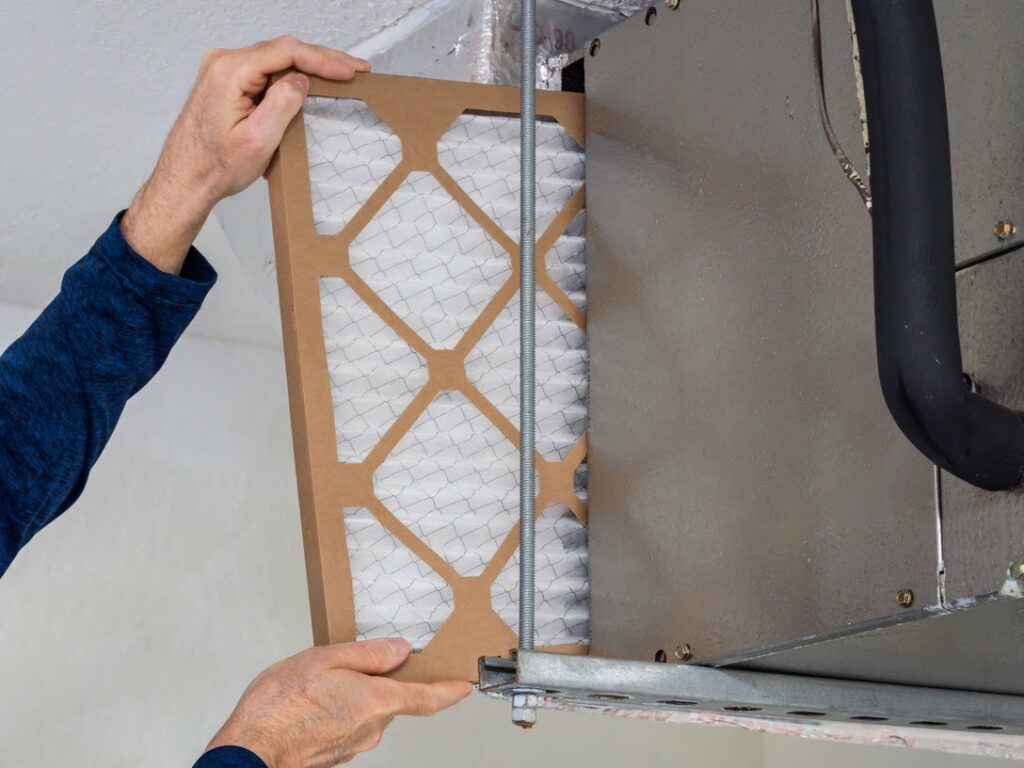
Beyond the above, however, heat pumps and furnaces are extremely different systems. We’ll cover what those differences mean for homeowners next.
Differences
The key differences between heat pumps and furnaces are:
- Energy efficiency: it would be too simple to say heat pumps are more efficient than furnaces, or vice-versa. While heat pumps are commonly thought to be more efficient, modern natural gas furnaces in cold climates can be more cost-effective to operate in some cases. On top of that, every indoor space has unique heating needs, so your best bet is to contact us and learn more about which option will be best for your home.
- Number of units and space required: heat pumps typically have an indoor and outdoor unit, just like an air conditioner. The outdoor unit will need about 24 inches of clearance on all sides to operate efficiently, whereas the indoor portion can often be mounted on a wall and does not require clearance.
Furnaces, on the other hand, only have an indoor unit, which needs 30 inches of clearance around it to function safely and effectively—but if they’re paired with a central air conditioner, the AC will have distinct indoor and outdoor units, and the outdoor unit will need roughly 24 inches of clearance on all sides as well.
- Fuel: some furnaces are fully electric, but most forced air furnaces in Ontario use natural gas. By contrast, the vast majority of heat pumps rely entirely on electricity to function. While this allows heat pumps to bypass fuel costs, it can also make them more expensive to run in areas where natural gas is significantly cheaper than electricity.
The Pros & Cons of Heat Pumps & Furnaces
To sum up, here are the basic pros and cons of both systems:
Heat Pumps
Pros
- A two-in-one solution that can heat or cool a home
- Indoor unit does not require space around it
- Powered by electricity so there are no fuel costs
Cons
- Can be more expensive to operate than natural gas furnaces in cold climates (depending on electricity prices)
- Since heat pumps transfer heat instead of producing it, they can sometimes take longer to heat homes in cold climates
- Higher up-front costs than most forced air furnaces
Furnaces
Pros
- Generally more affordable up front
- Fuel-burning models can heat homes quickly in cold weather
- May have lower operating costs than heat pumps in cold climates
Cons
- Only produce heat (and require pairing with central AC for a complete climate control system)
- Indoor unit takes up more space and requires clearance on all sides
- Come with fuel costs as well as any electricity needed to run control panels or other supporting components
Making the Choice: When to Use Heat Pumps or Furnaces
Ultimately, heat pumps and furnaces can both be effective for Ontario homes. Modern heat pumps are becoming more effective at warming homes during harsh winters, while current high-efficiency natural gas furnaces are energy efficient enough to compete with heat pumps in cold regions.
The biggest factors to consider when choosing a heat pump or a furnace have to do with your space and needs. If you’re interested in a single system that can provide heating and cooling, a heat pump is worth the investment. If you already have central air conditioning or don’t normally need to cool your home in the summer, a forced air furnace is still a great option.
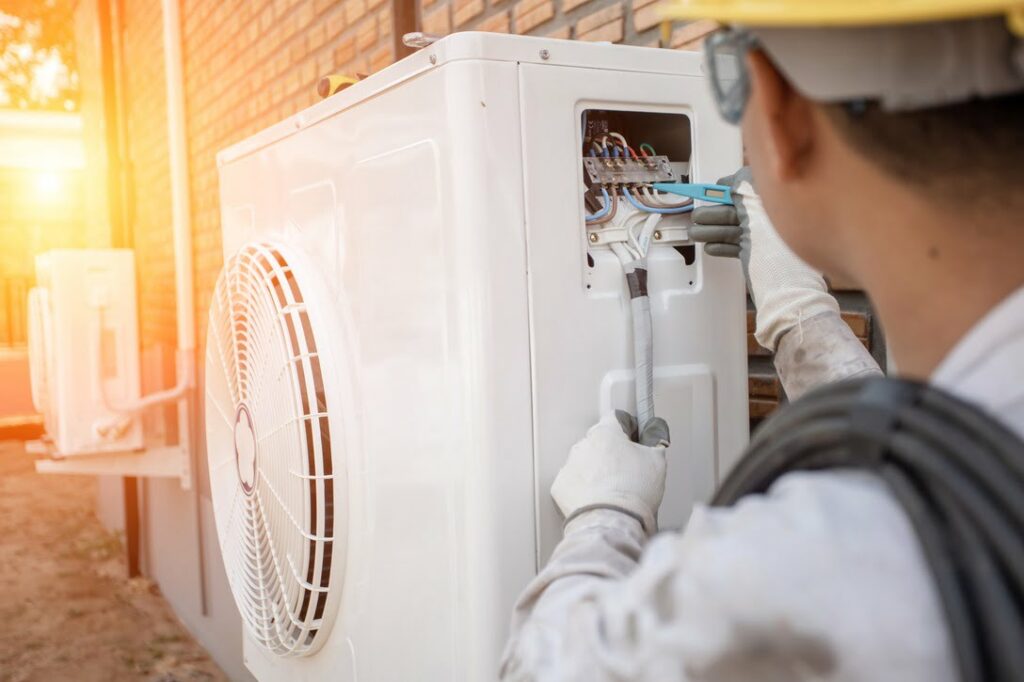
Cross Home Heating Off Your To-Do List with Expert Help
Our team is standing by to help you determine whether a heat pump or furnace will best suit your needs. To learn more about the best climate control solutions for your specific home, contact us and speak with a heating and cooling expert.

